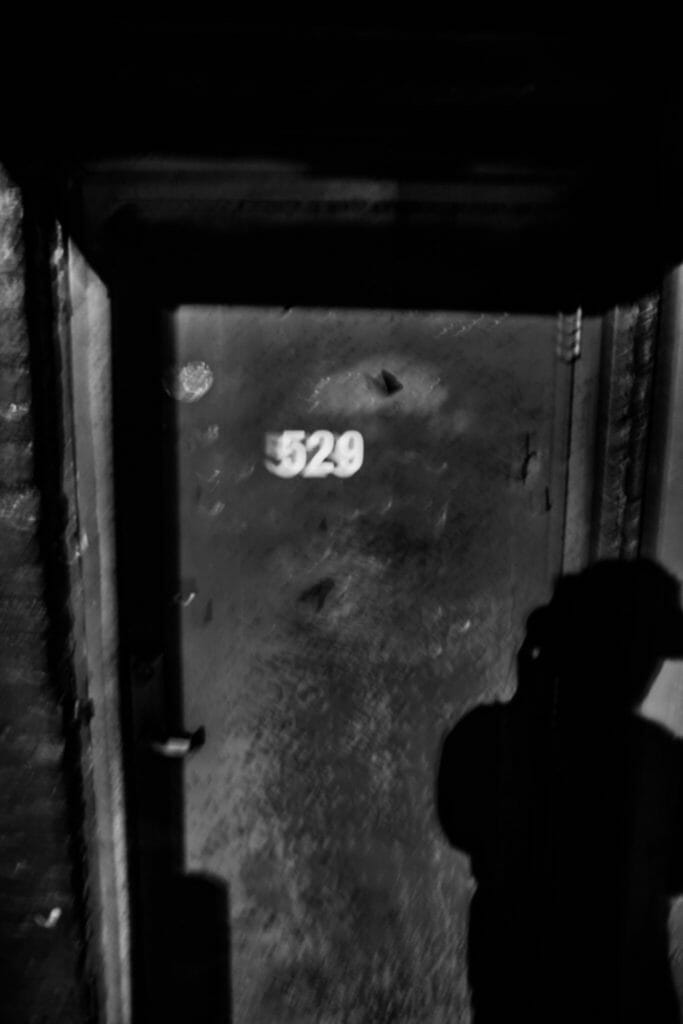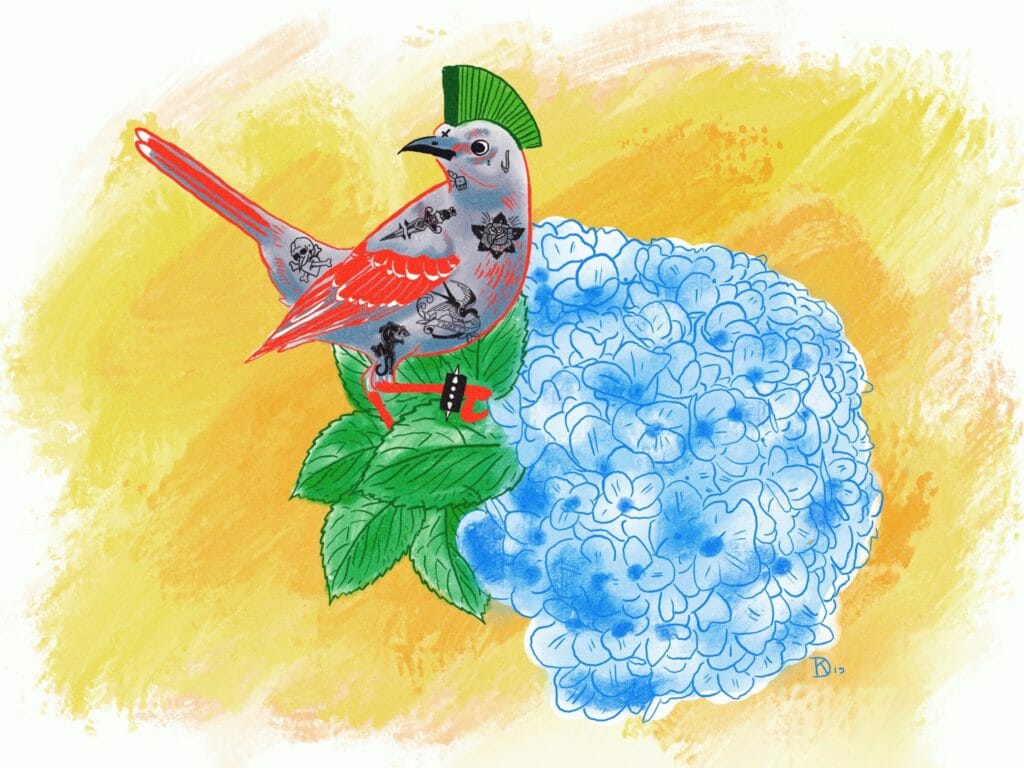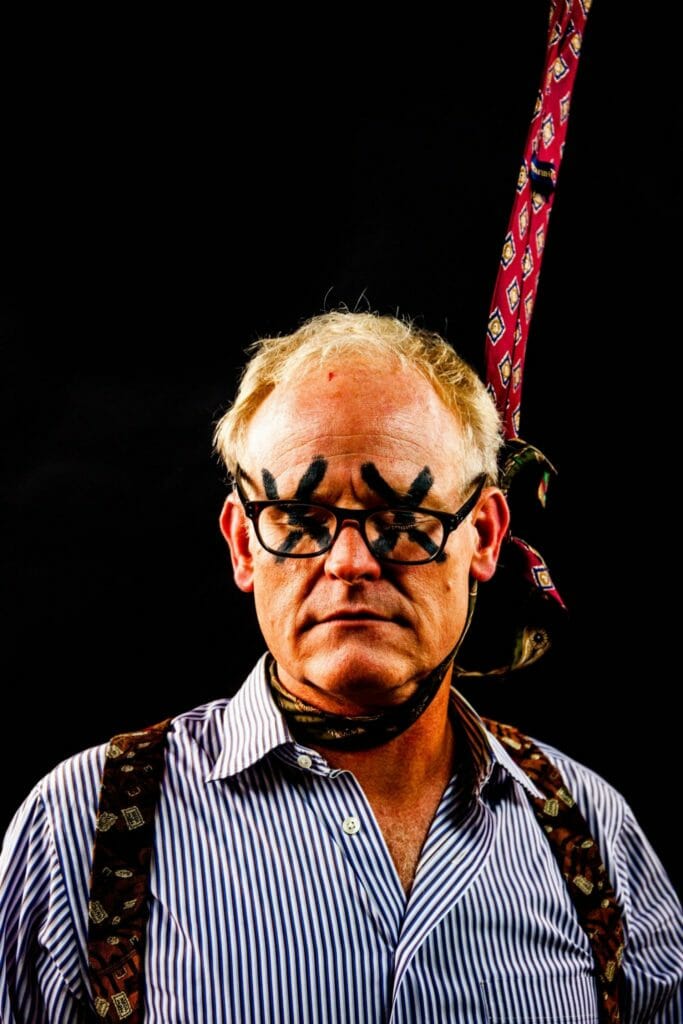Tell me that I’m the stuff of science fiction. Tell me that I’m a cheap, capitalist commodity, a failed eugenic experiment in nature and nurture. Tell me, if you will, “Shit, man. That’s heavy.”
Just don’t tell me that he’s still my dad.
Because I already know. And because it’s the first thing everyone says.
Everyone.
Perhaps you’ve found, as I have, that empathy grows more accessible with age; the more heartaches we toss onto our little heartache piles, the easier it becomes to grab the right one when a bit of empathy is occasioned. Essentially, it’s through my own traumas that I can get a feel for yours. And us humans, you know, we hurt one another. We get it all wrong, all the time. Hell, some of us even FaceTime in coffee shops. But our capacity for empathy is redemptive: it’s our Grace.
And yet, what do even my most empathetic friends say when I tell them? He’s still your dad.
No hard feelings, though. I’ve come to understand that folks simply can’t empathize with this one—it’s just too uncommon a heartache. And unless you were adopted, or deceived about your parentage, or like me, discovered at age 35 that you were the product of anonymous sperm donation, you probably can’t either. But try for me anyway.
Consider, for my sake, the middle toe of your left foot. Without touching it, I want you to try to feel it, feel the bones and the skin and the muscles. Sense it. Can you isolate these sensations from those of your surrounding toes?
Hell no you can’t. You know damn well that you’ve got a middle toe down there; you can feel it. But where that toe starts and the other toes begin is a dull, fuzzy tangle of tingles.
Now, try to move it—just the middle one.
Try this for too long, and you’ll find yourself spinning out, disoriented, befuddled. Where even is this toe, you’ll wonder. Does it actually occupy physical space? My god, you’ll realize, I’m nothing but a mass of indistinct synapses, undefined and free falling electrical currents plummeting down a subjective space-time continuum. OH, LORD IN HEAVEN, PLEASE HELP ME TO LOCATE THIS MIDDLE TOE!
This is pretty much what it feels like to learn that you were donor conceived.
No offense to all the overtattooed, underemployed “musicians” who may or may not remember our time together, but the great love of my life has always been words. Still, I have never been able to describe what this discovery did to me, to articulate where it has left me—because I’ve never even been able to locate it. Forget middle toes: try perceiving half of your DNA.
In case you’re curious, here’s the backstory:
I’m 12 years old; and thanks to sex ed, the opening credits of Look Who’s Talking, and that episode of “The Simpons” where Homer pretends to be a sperm, I know about semen. It’s 1995, and I’m what adults refer to as a “late bloomer.”
One summer night, I’m walking through the living room to the kitchen, probably to get some Kool-Aid (we didn’t know about water in those days; it was a different time), and as I’m passing by, I pause to check out whatever it is my parents are watching. Let’s say it was “Law & Order.” The version with Jerry Orbach, god rest his precious angel soul. And Jerry—or maybe Jack or Lt. Van Buren or Mr. Big or someone—says the phrase “artificial insemination.”
“Whut’s that, Momma?” (I had not yet been shamed out of my working-class Southern accent.)
And Momma, who even today prides herself on being honest with her children, told me all about artificial insemination. “Sperm,” she explained. And, “dads that don’t have enough sperm.” And “eggs” and “turkey basters” and “doctors” and so forth. And lastly: “We tried it with you.”
My father never looked up from the television.
“Ew, okay, no need to elaborate, ugh, I get it, duh, Brad Renfro forever.” Or something like that. I continued to the kitchen.
For a long time, I wasn’t able to admit to myself how much the truth of my conception mattered to me.
But as I was pouring my Kool-Aid, something fantastical struck me. I marched back to the living room: “Wait. You tried it with me? Does this mean dad isn’t my dad?”
“No,” my mother said, her eyes locked on Jerry Orbach. “When I found out I was pregnant with you, I was too far along for it to have been the insemination. You were my miracle baby.”
Fast forward a couple of decades. By this point, I’ve been divorced, earned a couple degrees, landed a respectable job, bought some real estate, and smoked crack a handful of times. Yet, despite such sophistication, it wasn’t until 2019, at 35 years-old, that the patent absurdity of my mother’s story truly hit me. For starters, my middle sister is only 16 months younger than I am—it would seem that my folks didn’t expect to get pregnant again. And both of my sisters are a full four inches taller than me, with completely different faces and body types. They look just like our father…who, it turned out, was plenty fertile. (My beloved grandmother once told me that my sisters “look like they was dug outta your daddy’s asshole.” She assured me that this was just how country people say it.)
Now, I’ve read enough #wellness memes to know that negative self-talk is incompatible with #livingmybestlife, so instead of marveling at my own dumbfounding credulity, let me cast my better-late-than-never revelation in a more compassionate light: fact is, for a long time, I wasn’t able to admit to myself how much the truth of my conception mattered to me. It felt too much like betrayal—of my parents, my sisters, everyone. But as my self-understanding increased naturally with age, so too did my need to know.
Before we continue, we have to get one thing straight: I LOVE the man who raised me. He. Is. My. Dad. In the donor conceived (DC) community, he would be termed my “social” dad, for the purpose of distinguishing him from my “bio” or “donor” dad (otherwise, conversations get confusing af). For clarity, I shall henceforth refer to my sperm donor as my bio dad. The sensitive, loving, incorrigible dadsplainer that changed my diapers and cried when Dale Earnhardt died shall be called, simply, my dad.
I always knew, on a cellular, instinctual level, that there was a disconnect. I was too different from him, from his family: I was an alien.
But… even though he’s my dad and even though I love him very much and even though he’s the most caring father any girl could dream up, I always knew, on a cellular, instinctual level, that there was a disconnect. I was too different from him, from his family: I was an alien. An immensely fortunate and well-loved alien. My middle sister, whom I also love very much, sensed this too. So earlier this year, when I asked her to do a 23andMe DNA test, she agreed.
We spit in some tubes, shipped them off, and waited. Just a few weeks later, the results confirmed what in our guts we already knew: we were only half-sisters. She matched with members of my dad’s family; I did not. Today, I am writing this essay anonymously, because she and I have decided to keep this secret to ourselves—at least for now.
I think that each of us, at some point, feels like we don’t belong, even within our own families. Perhaps this is why plotlines that revolve around surprise lineages have long been popular in literature and film. Oedipus is actually the son of Laius; Harry Potter is actually the progeny of wizards; Jon Snow is actually a Targaryen; and Luke, despite being an insufferable wet-rag, is actually Darth Vader’s little boy. Revelations such as these leave the characters—and often the audience—reeling with their implications.
However, as any DC person can tell you, when these revelations occur in real life, their significance is often downplayed, if not outright dismissed—even by those who love us.
While each DC experience is unique, the following non-DC responses to them are commonplace: He’s still your dad. You must have been so wanted. It’s just genetics; it doesn’t mean anything. You’re being selfish for wanting to know about your biological father. Don’t you know how much this will hurt your dad? What’s the big deal, it’s no different than being adopted or the product of a one-night stand. No one even cares about this but you.
This is all B.S. Often, it’s well-intended, earnest B.S. by folks who genuinely don’t know what to say (and who would?). But other times, it’s B.S. that’s meant to shame and guilt, to shut you up about this very difficult truth. Oh, and to silence you about the fact that, for your whole life, you’ve been lied to about something literally essential to your existence.
Very few of you, dear readers, have had the experience of discovering that your genetic identity was a lie all along; very few of you have held this particular heartache. You may think that you know how you’d feel in the face of such a discovery, but I promise that you don’t and you can’t. So I ask you to roll with me on this one. Because there are LEAGUES of people like me. I mean, y’all might wanna start DNA testing your Tinder matches, because we’re everywhere. And while the friends I’ve shared my story with have been compassionate—even when they don’t quite get why I’m upset—many DCs are not so lucky. In support of my fellow DCs, especially those who get shut down by loved ones, I want to clear up a few common misconceptions:
- He’s still your father. In my case and the cases of many, many others, this is a straightforward no doikey, almost too obvious to verbalize. For others, it’s not so simple. First, many DCs are born to single moms or same-sex partners. They’ve never had a social dad—or, in the case of egg donation and surrogacy, a social mom. Second, there are just as many douchebag parents raising DC kids as there are raising “natural” kids. Mix these douchebags in with divorce and lack of genetic ties, and you get some real gnarly relationships with that guy who is supposedly “still your father.”
What I find most interesting about the (understandable and well-meaning) “he’s still your father” reaction is that it presumes a DC’s biggest fear is that their social father is not really their father anymore. Actually, what many of us are rocked by is not a fear that our social dad is no longer our dad, but the revelation that our genetic makeup came from someone with whom we have no social connection.
- You must have been so wanted. Think about your wants, your desires. How many of them are altruistic? How many are driven by your ego? Just as some families choose to have “natural” kids for complex and sometimes unhealthy reasons, those who choose donor conception may have their own imperfect motivations. My mother was so impatient to be a mom that she was inseminated less than a year after marrying my 20 year-old father, whom the doctors thought might be infertile. At the time, my folks were living in a trailer park; I don’t even know how they afforded the procedure. But my mom wanted me so badly that she didn’t try for long enough, didn’t ensure that they were on solid financial footing to provide for a child. Don’t get me wrong, the woman is a goddess and loves me more than life—but her want was as complicated and personal as any want, maybe as all wants.
- It’s just genetics; it doesn’t mean anything. Your medical history matters, period. Having access to that history is a human right. To be clear, I’m saying that anonymous donation is unethical and should be illegal. It already is in some countries. Donor anonymity is rooted in the desire of rich dudes to make money off desperate folks, while not publicly emasculating the infertile social father. In other words, it’s rooted in capitalism and patriarchy—at the expense of the child’s emotional and physical wellbeing. Even if, like me, you’re blessed with a wonderful social parent, the fact remains that the very building blocks of your being come from another person, someone you’ve never met. And if the explosion of personality tests, astrology apps, WebMD self-diagnoses, aura photography, etc., reveals anything about us, it’s that we humans deeply wish to understand ourselves. The source of half your DNA is a significant piece of that puzzle. If you think it wouldn’t matter to you, please believe me when I tell you that you’re simply unable to imagine it.
With the recent availability of inexpensive DNA tests, these accidental discoveries can come as quite a sudden shock.
- You’re being selfish for wanting to learn about your biological father. Don’t you know how much this will hurt your dad? Seemingly everyone understands a parent’s desire to have a genetic connection with their child…but for some reason, they are often reluctant to apply this formula in reverse. Not every DC wants to know their bio parent. But the fact that many do should come as no surprise. If genetic connection didn’t matter, then 1) infertile couples would adopt instead, and 2) there wouldn’t be a perceived need to keep donor conception secret. Let’s say you discovered that you have an unknown sibling…or perhaps 20 of them. Wouldn’t you be at least curious?
Also, and this point is critical, neither the desire to know one’s genetic history nor the desire to have a relationship with genetic relatives is a rejection of one’s social family. It’s about creating new connections, new explanations—not discounting those that have been there from the beginning. Genes don’t automatically make a family; but they’re important. This can be difficult for both social parents and DCs themselves to accept. But it is NOT selfish to seek out where you come from. Rather, it’s as fundamentally human as it gets.
- What’s the big deal, it’s no different than being adopted or the product of a one-night stand. And your point is? Of course there are similarities. One of them being that many adoptees and folks of unknown parentage also struggle with uncertain identities and uneasy relationships to their social and/or biological relatives. A 2013 study published by the American Academy of Pediatrics found that adoptees are 4 times more likely to commit suicide than non-adoptees. To my knowledge, a similar, credible study isn’t available for DCs—but I’d be curious to see one, as well as data on rates of mental illness and substance abuse. In the days after receiving my test results, when I felt suspended in nothingness, it was my friend M, herself adopted, who helped me find my bearings.
There is, however, one crucial difference between adoption and donor conception: unlike the adoption process, which thoroughly screens prospective parents, pretty much anyone can buy or sell semen. The industry is almost completely unregulated.
- No one even cares about this but you. Bless your heart; you are a dick.
Like just about all DCs, my situation is tricky, and my response to it has been highly individual. Many DCs, quite understandably, bear varying degrees of resentment toward those who kept the truth from them…especially since, with the recent availability of inexpensive DNA tests, these accidental discoveries can come as quite a sudden shock. Some DCs are furious, both with their folks and the unregulated fertility industry. Some appear to be less affected—or, at least, are less vocal about their feelings.
Likewise, the social parents of DCs also react in varied and unpredictable ways. When confronted with direct DNA evidence, some continue to lie, while others become defensive and accusatory. Occasionally, you hear about social parents being honest and supportive, even apologetic. Secrets such as these, no doubt, are also corrosive to those who keep them, those who live in fear of their discovery.
Which brings us to the donors. Granted, they’ve gone decades thinking that this would never happen, that they would remain forever anonymous. Truth be told, my heart goes out to them. What a mental and intestinal earthquake that must be—to get an email, a phone call, a new child.
Having said that, this was always a possibility for them, a potential consequence of an informed and compensated transaction they entered into as adults. They had a choice; we didn’t.
Luckily for them, some DCs don’t care at all to know about their donors.
Lots do.
But it’s an emotionally risky endeavor. Some donors welcome their newly discovered offspring with open arms, and the ensuing relationships range from kindly acquaintances to friends to family. Many donors, on the other hand, don’t respond to contact at all. Or, if they do, they’re willing to provide only basic medical information. Every so often, a particularly heartless donor will threaten legal action after receiving just one email—a painful and unnecessary insult, since DCs have no legal claim to their donor’s money or property.
Sometimes, the donor is already deceased.
Thanks to the investigative skills I’ve perfected by “researching” the ex-girlfriends of ex-boyfriends, I, too, was able to track down my bio dad. I followed a trail of second cousins, Facebook profiles and obituaries until I found him—a doctor from Atlanta, currently living in Virginia. In 1982, when I was conceived, he was still a med student.
I’d always privately wondered if my nose was a birth defect. It’s significantly longer on one side, conspicuously crooked. Perhaps, I speculated, the 24 hours that I, a huge and hideous orc of a baby, had flailed around the birth canal had somehow warped my nose into Dali painting.
(Don’t worry—I’m cute as shit now.)
But both my bio father and his son—my half-brother, a redhead of all things—have the same long and winding schnoz. As did my bio grandfather, who along with my bio grandmother passed away several years ago. Based on their obituaries and the few photos I could find, it seems like they were sweet people. I especially wish I had met my grandmother, from whom I inherited about 33% of my DNA, an unusually high percentage for a grandparent relationship.
Maybe human souls are diffuse, amorphous. That maybe they permeate our every living cell, our every strand of DNA.
In addition to the crooked beak, I also discovered the source of my scrawny limbs and scholastic nerdiness, neither of which I share with members of my social family. My lanky half-bro is both a literal rocket scientist and a legit Saved-by-the-Bell-level geek. He’s adorable. Part of me wishes I could be his big sister, or at least help him shop for cooler bluejeans. For now, though, just seeing their photos, just knowing the truth, is enough for me. I make more sense to myself, and this has brought me peace that I couldn’t have anticipated.
Of course, this is how I feel after months of processing. In the few weeks following the DNA test, I tottered between numb abyss and snotty, disoriented sobbing.
Here’s where I’m at today: I think that maybe human souls are diffuse, amorphous. That maybe they permeate our every living cell, our every strand of DNA. That maybe they tumble like unknown children down the slopes of our long, winding noses.
Is being dramatic genetic?
I don’t know whether I’ll ever contact my bio dad. For the time being, I choose not to. Mostly, this is because I’m scared of hurting my parents. As far-fetched as it seems, I genuinely believe they’ve convinced themselves that I’m my dad’s biological child (this kind of denial is not uncommon among social parents). And if I did form a relationship with my donor, I wouldn’t feel right hiding it from them—I would have to come clean about the whole thing. When it gets down to it, I’ll keep their lie, but I don’t want to create my own.
Oh, and also, my bio dad’s Facebook profile pic is a photo of the sailboat he owns. I was raised a Chevy girl. What would we even talk about?
A couple weeks ago, my mom watched as my dad showed me how to use the drill he’d bought me. Together, we were building an altar for my sister’s wedding, which I would be officiating three days later. We had some oldies on, and I guess we were feeling a little sentimental. As she has so many times, my mother told me how desperately she’d wanted me. I was her miracle baby.
I managed to keep my eyes dry and my drill straight, but I couldn’t speak. The thought of hurting them dismantles me from the inside.
Yet, I have also been hurt by this secret. And had I not learned the truth, I would be hurting now—I just wouldn’t know why.
But he’s still my dad.




